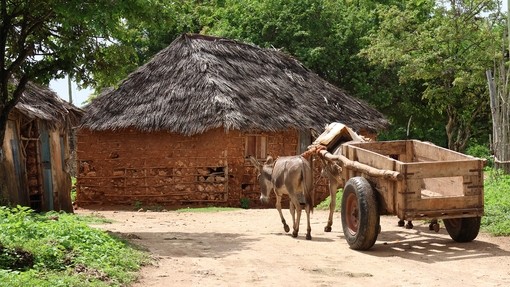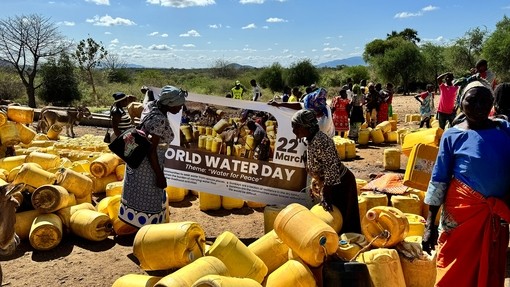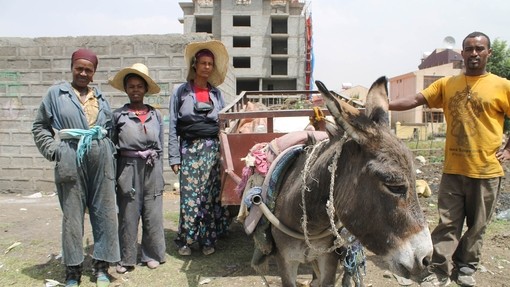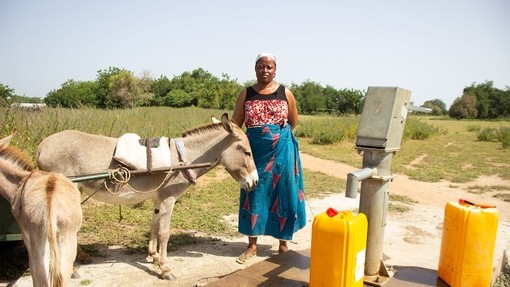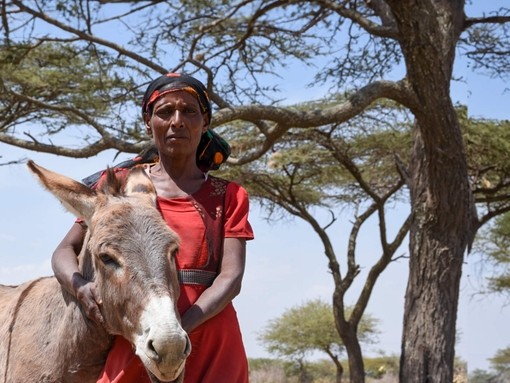
Do not change or delete this
At the highest level, this was a decision to protect Africa’s donkeys from a cruel and unregulated trade which, according to The Donkey Sanctuary’s latest figures, is responsible for the deaths of at least six million donkeys every year.
It was also a milestone for female emancipation on a continent where donkeys liberate women from back-breaking and time-consuming labour, and where having a donkey can be the difference between girls going to school or fetching water.
The slaughter of donkeys in Africa is fuelled by demand for a traditional Chinese medicine, ejiao. Made by extracting the collagen from donkey skins, ejiao is skilfully marketed as a luxury product and is soaring in popularity among China’s middle-class consumers. In China, the ejiao industry thrives on promising health and vitality. It is a cruel irony that in Africa, the same industry deprives women of their health and wellbeing by taking and destroying their donkey co-workers and companions.
Number five of the United Nations’ Sustainable Development Goals is to achieve gender equality and empower all women and girls. Across Africa and around the world, donkeys undeniably have a crucial role to play in achieving this goal by liberating women and girls from strenuous domestic chores or providing a modest income through transport or agriculture.
According to researcher and sociologist Martha Geiger, donkeys are unrecognised humanitarian workers whose labour ensures the survival of people, especially vulnerable women and children. Her research in rural Ethiopia, funded by The Donkey Sanctuary, evidences the intricate relationship between donkeys and female empowerment and makes the case for their contribution to be counted within development work aimed at raising the status of women.
We work with some truly inspirational organisations, including Women and Land Zimbabwe and ActionAid, in Ghana, to promote key concepts of donkey welfare. Through these projects women gain shareable skills to make better harnesses, grow drought-resistant fodder and improve conditions for working animals. By taking care of their donkey co-workers, women are not only building resilience in their communities, they are also elevating their own status as experts in animal welfare.
I am incredibly proud of what we have achieved through our partnerships, but our precious resources are limited. As Geiger says, if we are to create a sustainable future for women and girls, overseas aid must be extended to support the welfare of the donkeys whose contribution can be the difference between modest survival or destitution. However, this will only work if the ban on donkey slaughter is implemented by each and every country that makes up the African Union.
There are many, compelling reasons to stop the donkey skin trade. Extensive research by The Donkey Sanctuary and our partners has exposed an animal welfare disaster which impedes sustainable development, threatens biosecurity and facilitates wildlife crime and trafficking right around the world.
However, on International Women’s Day, one argument stands above all others - an industry which takes donkeys from the women whose lives depend on them, and slaughters them to create a luxury product for the wealthy on the other side of the world, is the very antithesis of female empowerment and must be stopped.
The decision taken at the 37th African Union Summit was a truly pivotal moment in ending the donkey skin trade. As CEO of The Donkey Sanctuary, I will ensure we continue to provide all the support and resources we can to see this commitment become a reality, so we can go on improving the lives of women and donkeys, in Africa and around the world.
Share this page
Tags
- Blog

